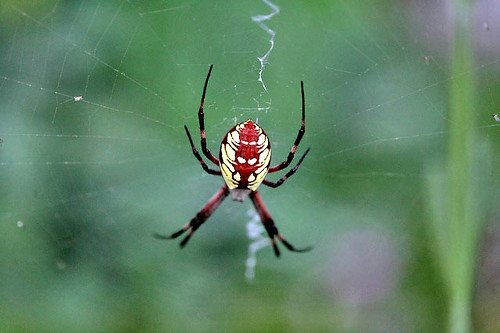Yesterday a guy came to the door wanting to know if we had any spiders we wanted killed.
“Spiders? Killed?”
“Yeah, we’re doing the house down the street, thought you might have a problem too.”
“We like spiders. We don’t kill them.”
“You LIKE spiders?”
“Yes. We LIKE spiders. We don’t kill them. They kill the bugs we don’t like. So we don’t kill the spiders. Thanks for stopping by, but we don’t need anyone to kill our spiders.”
So, is it safe to assume that everyone hates spiders and wants to get rid of them? I love spiders. I don’t even kill the ones I find occasionally in my room. I might shoo them out the window, but more likely I’ll let one build a small web in the corner and let her catch mosquitos. When she’s done and gone I’ll dust away the web. The daddy long legs do tend to overpopulate the eves outside, but they are easy enough to brush away a couple of times a year.
Why do I like spiders? Because I hate, truly hate, mosquitos and silverfish. Insects that spiders like to eat. Same reason I love praying mantis.
Sometimes at night, I’ll find a spider in the bathtub. I’ll talk to the spider and say “Hey there Mr. Spider. You don’t belong here. Tomorrow morning I’m going to take a shower and if you are still in the tub you are going down the drain.” Sure enough, 9 times out of 10, Mr. Spider is gone by the morning.
Here in California, the only spider you really have to watch out for are black widows. But they are quite distinctive. Jet black with a bright red hour glass shape on their belly. Black widows have really ugly webs too, and tend to hang out in outdoor tool sheds.
Anyway, this beautiful gal is an Argiope Aurantia, also known as the Yellow Garden Spider. She is currently camped out on my lavender bush in my flower garden. She’s been there for about a week and has managed to devour quite a few bugs.
Links:
Spiders teamed up to create a giant web, scientists say


